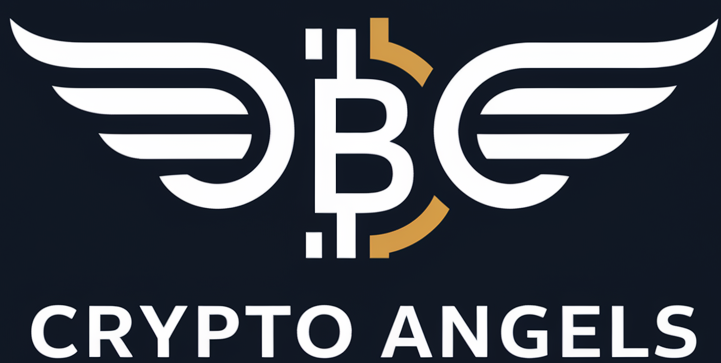Introduction to MetaMask and Trust Wallet
In the world of cryptocurrencies, having a reliable and secure wallet is crucial for storing, sending, and receiving digital assets. Two popular options in the market are MetaMask and Trust Wallet. Both wallets offer unique features and cater to different user preferences, making it essential to understand their differences when choosing the best crypto wallet for your needs.
MetaMask and Trust Wallet are non-custodial wallets, meaning that users have full control over their private keys and funds. They provide a user-friendly interface for managing cryptocurrencies and interacting with decentralized applications (dApps). However, each wallet has its strengths and weaknesses, which we will explore in this comprehensive comparison.
What is MetaMask?
MetaMask is a popular Ethereum wallet that started as a browser extension for Chrome and Firefox. It has since expanded to support mobile devices through its iOS and Android apps. Created by ConsenSys in 2016, MetaMask has become a go-to wallet for Ethereum and EVM-compatible networks, with over 30 million users worldwide.
One of the main advantages of MetaMask is its seamless integration with Ethereum-based dApps. Users can easily interact with decentralized exchanges, lending platforms, and other applications directly from their wallet. MetaMask also supports hardware wallet integration, providing an extra layer of security for users who prioritize the safety of their funds.
What is Trust Wallet?
Trust Wallet is a multi-chain mobile wallet that supports over 250,000 cryptocurrencies and tokens across 65 blockchains. Created by Viktor Radchenko in 2017, Trust Wallet was later acquired by Binance, one of the world’s largest cryptocurrency exchanges.
Trust Wallet’s main selling point is its wide range of supported assets and blockchains. In addition to popular cryptocurrencies like Bitcoin, Ethereum, and XRP, Trust Wallet also supports lesser-known tokens and niche blockchains. This makes it an attractive option for users who hold a diverse portfolio of digital assets.
Key Features of MetaMask and Trust Wallet
Both MetaMask and Trust Wallet offer a range of features that cater to the needs of cryptocurrency users. While they share some common functionalities, each wallet also has its unique selling points.
MetaMask Features
- Ethereum and EVM compatibility: MetaMask supports Ethereum and various EVM-compatible networks, such as Binance Smart Chain, Polygon, and Avalanche.
- dApp browser: Users can interact with decentralized applications directly from their MetaMask wallet.
- Hardware wallet integration: MetaMask can be connected to hardware wallets like Ledger and Trezor for added security.
- Token swapping: MetaMask has an built-in token swap feature, allowing users to exchange tokens directly within the wallet.
Trust Wallet Features
- Multi-chain support: Trust Wallet supports over 65 blockchains, including Bitcoin, Ethereum, Binance Smart Chain, and more.
- Staking: Users can stake their cryptocurrencies directly from Trust Wallet to earn rewards.
- Binance Pay integration: Trust Wallet is integrated with Binance Pay, allowing users to send and receive payments seamlessly.
- dApp browser: Trust Wallet also features a dApp browser for interacting with decentralized applications on supported blockchains.
Supported Cryptocurrencies and Blockchains
One of the key differences between MetaMask and Trust Wallet is the range of supported cryptocurrencies and blockchains. While MetaMask primarily focuses on Ethereum and EVM-compatible networks, Trust Wallet supports a wider variety of assets.
MetaMask: Ethereum and EVM Compatibility
MetaMask’s main focus is on Ethereum and EVM-compatible blockchains. This means that users can store, send, and receive Ethereum and tokens built on Ethereum, such as ERC-20 and ERC-721 tokens. Additionally, MetaMask supports various Layer 2 scaling solutions and side chains, including:
- Binance Smart Chain
- Polygon
- Avalanche
- Optimism
- Arbitrum
While MetaMask can be configured to support other networks, it requires manual setup and may not be as straightforward as Trust Wallet’s multi-chain support.
Trust Wallet: Multi-Chain Support
Trust Wallet’s strength lies in its wide range of supported blockchains and tokens. In addition to Ethereum and EVM-compatible networks, Trust Wallet supports:
- Bitcoin
- XRP
- Cardano
- Polkadot
- Solana
- And many more
This multi-chain support makes Trust Wallet an attractive option for users who hold a diverse portfolio of cryptocurrencies across different blockchains.
Security and Privacy
Security and privacy are top priorities when it comes to storing cryptocurrencies. Both MetaMask and Trust Wallet implement various measures to protect users’ funds and personal information.
MetaMask Security Features
- Non-custodial wallet: Users have full control over their private keys and funds.
- Seed phrase backup: MetaMask provides a 12-word seed phrase for wallet recovery.
- Password protection: Users can set a password to unlock their MetaMask wallet.
- Hardware wallet integration: MetaMask can be connected to hardware wallets for added security.
Trust Wallet Security Features
- Non-custodial wallet: Like MetaMask, Trust Wallet is a non-custodial wallet where users control their private keys.
- Secure enclave: Trust Wallet stores private keys in a secure enclave, isolated from the device’s main operating system.
- Biometric authentication: Users can enable Touch ID or Face ID for additional security.
- Passcode protection: Trust Wallet allows users to set a passcode for wallet access.
Both wallets prioritize user security and privacy, ensuring that users have full control over their funds and personal information.
Ease of Use and User Experience
When choosing a cryptocurrency wallet, ease of use and user experience are important factors to consider. MetaMask and Trust Wallet both strive to provide a user-friendly interface, but they differ in their approach.
MetaMask User Interface and Experience
MetaMask’s user interface is designed to be intuitive and easy to navigate. The wallet extension integrates seamlessly with web browsers, allowing users to interact with dApps and manage their funds without leaving their browser. MetaMask also offers a mobile app for iOS and Android devices, providing a similar experience on the go.
However, some users may find MetaMask’s interface to be more technical compared to Trust Wallet, especially when it comes to adding custom networks or interacting with complex dApps.
Trust Wallet User Interface and Experience
Trust Wallet’s user interface is designed with simplicity in mind. The mobile app is easy to navigate, with a clear overview of users’ assets and transaction history. Trust Wallet also provides a built-in dApp browser, allowing users to interact with decentralized applications directly from their wallet.
Trust Wallet’s user experience caters to both beginners and experienced users, with a straightforward setup process and intuitive navigation. The wallet’s multi-chain support also makes it easy for users to manage their diverse portfolio of cryptocurrencies in one place.
Choosing Between MetaMask and Trust Wallet
Deciding between MetaMask and Trust Wallet ultimately depends on your specific needs and preferences. Both wallets offer a secure and user-friendly way to manage your cryptocurrencies, but they cater to different use cases.
When to Use MetaMask
MetaMask is an excellent choice if you primarily interact with Ethereum and EVM-compatible networks. If you frequently use decentralized applications like Uniswap, Compound, or OpenSea, MetaMask’s seamless integration with dApps makes it a convenient option. Additionally, if you value the added security of hardware wallet integration, MetaMask is a solid choice.
When to Use Trust Wallet
Trust Wallet is the better choice if you hold a diverse portfolio of cryptocurrencies across multiple blockchains. With support for over 250,000 assets and 65 blockchains, Trust Wallet allows you to manage all your cryptocurrencies in one place. If you value simplicity and ease of use, Trust Wallet’s user-friendly interface and mobile-first approach make it an attractive option.
Ultimately, both MetaMask and Trust Wallet are reputable and widely-used cryptocurrency wallets. Your choice between the two will depend on your specific needs, the cryptocurrencies you hold, and your preferred user experience.
See also:





